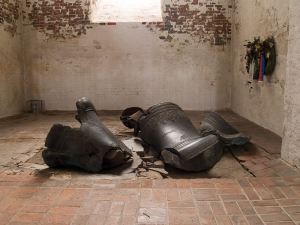Hungry strangers in our own lives
 I read about hunger almost every day, lately, and attempt to write about it.
I read about hunger almost every day, lately, and attempt to write about it.
There was a lot of hunger, in a lot of places, before, during, and after the second World War. I have an abundance of primary-source information from people in my own life who have never forgotten what it feels like. Many of them paid a big price for it with their health, or lived in fear afterward with cupboards they can never empty before the contents spoil. From my earliest days, I listened to stories of what it feels like — what you feel like — when you don’t have enough to eat.

Photo: David Campbell
I wonder what those who sought to remake the world with justice after the war would think of where we find ourselves as a world today? There is still hunger. There is unbearable savagery. I would sum it up by saying there is a collective consciousness still too unconscious of the verity, value, and imperative of soulhood.
In fairness, it’s hard to remake a world in “justice” in the midst of unimaginable destruction. If you can only go on what you think you know about justice, what you think history and experience have shown it to be, well, the possibilities in such imitation are, inevitably, quite limiting. If you don’t know what the very purpose of justice is, it’s like traveling without a map, or even a polar star.
“The purpose of justice is the appearance of unity among men.” ~ Bah��’u’ll��h
Unambiguous, this declaration is. And doubtless, very difficult to conceptualize — and apply — if you operate only from what you believe you know about human beings, and potential, based on what you believe you know about human history and experience. 
As I continue to study the war that launched our world into entirely unimagined directions, many of which have congealed in blighted possibility, like plants insufficiently watered, I think I’m discovering what the root of all hunger really is. There is much we have not yet mined, nor learned, from “history” that often remains a narrow category deliberately designed to keep certain things in, and certain things out — essentially what has always led to violence of every kind.

Photo: Diane Kirkup
But there is also a legacy that always outlasts that — a brilliant jewel of indestructible power whose facets reflect those qualities of justice and unity that Bah��’u’ll��h has pointed to. I believe that it is the only reason there is any possibility of either survival or advancement, just as I believe that humanity continues, if blindly, to let itself be convinced to treasure trash, while overlooking the one true treasure it has.
John O’Donohue has recognized what it is, and why it triumphs, and why we suffer so deeply — every kind of hunger we know — when we betray ourselves by depriving ourselves of it:
Our time is hungry in spirit. In some unnoticed way we have managed to inflict severe surgery on ourselves. We have separated soul from experience, become utterly taken up with the outside world and allowed the interior life to shrink.
Like a stream disappears underground, there remains on the surface only the slightest trickle. When we devote no time to the inner life, we lose the habit of soul. We become accustomed to keeping things at surface level.
The deeper questions about who we are and what we are here for visit us less and less. If we allow time for soul, we will come to sense its dark and luminous depth. If we fail to acquaint ourselves with soul, we will remain strangers in our own lives.����
~ John O’Donohue




